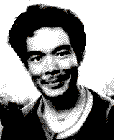|
Melody in Prison: Ngawang Choephel |
||
 |
UPDATE 19 August 2000 |
The following story was published by the Indian Express in New Delhi. Please note it is incorrect in stating that Ngawang grew up in Dharamsala. He grew up in Mundgod, a Tibetan resettlement community in southern India, and moved to Dharamsala as a young adult to study at the Tibetan Institute of Performing Arts. The story’s final paragraph mentions the need for Sonam Dekyi to have permission to cross Nepal. As reported on 9 August,, she and her brother were detained in Kathmandu for several days before being allowed to enter the Tibetan Autonomous Republic.
Mother Fights for 6 Years for Son Imprisoned in China SONAM DEKYI could have been the mother in Maxim Gorky’s book Mother—
the mother who fights for her son. But while Pavel, the son in Gorky’s book was revolutionary, Dekyi’s son Ngawang Choephel is 34 year old Tibetan musician who went to his birthplace from Dharamsala and was jailed there on charges of espionage. That was in July 1995. Choephel had gone to take photographs of dancers and musicians in Tibet for a documentary on the cultural life in his native land. Ngawang Choephel, who grew up in Dharamsala, had left with his mother when he was barely two years old. His father was to follow them to India, but never did. Choephel had planned to trace his father as well during his Tibet visit. Instead, he was taken prisoner.
Ever since, Dekyi has been agitating for permission to visit her son lest he dies of multiple ailments caused by torture as he serves an 18-year sentence. And Jantar Mantar has been the site of her six year old long agitation.
This month, the Chinese government, under severe international pressure over the mother’s demand, approached Dekyi and asked her to meet Choephel. The son, who did not know of his mother’s agitation, was told of her visit just an hour before he met her on August 3.
Dekyi flew to Lhasa on August 1 and from there she was immediately taken to Chengdu Prison in China. During her stay in Chengdu till August 8, she got to see Choephel twice on—
August 3 and August 6— each time, for an hour. “The first time I saw my son after six years, I could hardly recognize him. He was thin, just a skin wrapped on bones,”" she says. He stood there separated from her by two counters and two layers of wire netting, she recalls.
When she started to weep, “he said, ‘Please don’t cry.’ And I immediately recognized his voice,” she says. “When I enquired about his health, he held his chest and told me that he had constant pain in the chest. Then putting his head down on the counter, he broke down,” she says. “And then both of us kept on crying, until the jailors warned us that the meeting would be ended if we did not stop,” she adds, weeping. She says she had to leave the garlic, sugar, blanket and shoes she had taken for Choephel with the jail authorities. But that doesn’t pain her as much as the fact that she was not allowed to even touch him as the wire netting separated them. “Both of us pleaded, but we were not allowed to come closer,” says Dekyi who now plans to go back to Jantar Mantar to resume her lonely fight for her son. “I have to rewrite the banners,” she says. Now, she says, her demand would be for his release as he is ill and needs medical attention.
She says that a Chinese doctor attending on her son told her that he was suffering from ailments of liver, lung and stomach and also urinary infection. When she asked the authorities to let him off as he had already been there for six years, they said he was stubborn and would not confess to espionage, Dekyi says.
A non-governmental organization—
Tibetan Centre for Human Rights and Democracy— which is supporting Dekyi’s cause, said that Choephel may face further torture. It also said that the permission granted to Dekyi should not be seen as a victory as it was just a tactic on the part of the Chinese government to score political points with the U.S. Dekyi is least concerned about these things. All she wants is to take care of her “child who is unwell,” she says. She does not utter a word of her bitterness. But she can barely stop her tears which flow in pain as she narrates her brief meeting with her son and the uncertainty that stares ahead.
She has given written appeals to the Chinese government asking for her son’s release for medical care, and she has also been told by the Chinese embassy here that they have nothing against permitting her to visit her son once a year—
provided she can get the Nepalese government to let her cross their territory.